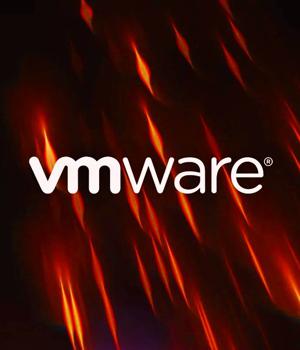Security News > 2021 > December > CISA urges VMware admins to patch critical flaw in Workspace ONE UEM

CISA has asked VMware admins and users today to patch a critical security vulnerability found in the Workspace ONE UEM console that threat actors could abuse to gain access to sensitive information.
Workspace ONE Unified Endpoint Management is a VMware solution for over-the-air remote management of desktops, mobile, rugged, wearables, and IoT devices.
The flaw tracked as CVE-2021-22054 is a server side request forgery vulnerability with a severity rating of 9.1/10 and impacting multiple ONE UEM console versions.
"A malicious actor with network access to UEM can send their requests without authentication and may exploit this issue to gain access to sensitive information," VMware explained in a security advisory issued on Thursday.
"CISA encourages users and administrators to review VMware Security Advisory VMSA-2021-0029 and apply the necessary mitigation," CISA said today.
"IIS reset will cause logged-in administrators to the server instance being patched to log out. Administrators should be able to log back in shortly after," VMware says.
News URL
Related news
- Still Using an Older Version of iOS or iPadOS? Update Now to Patch These Critical Security Vulnerabilities (source)
- Fortinet Urges FortiSwitch Upgrades to Patch Critical Admin Password Change Flaw (source)
- CISA extends funding to ensure 'no lapse in critical CVE services' (source)
- Critical Erlang/OTP SSH pre-auth RCE is 'Surprisingly Easy' to exploit, patch now (source)
- Critical Erlang/OTP SSH RCE bug now has public exploits, patch now (source)
- Critical Langflow Flaw Added to CISA KEV List Amid Ongoing Exploitation Evidence (source)
- CISA warns of hackers targeting critical oil infrastructure (source)
Related Vulnerability
| DATE | CVE | VULNERABILITY TITLE | RISK |
|---|---|---|---|
| 2021-12-17 | CVE-2021-22054 | Server-Side Request Forgery (SSRF) vulnerability in VMWare Workspace ONE UEM Console VMware Workspace ONE UEM console 20.0.8 prior to 20.0.8.37, 20.11.0 prior to 20.11.0.40, 21.2.0 prior to 21.2.0.27, and 21.5.0 prior to 21.5.0.37 contain an SSRF vulnerability. | 7.5 |